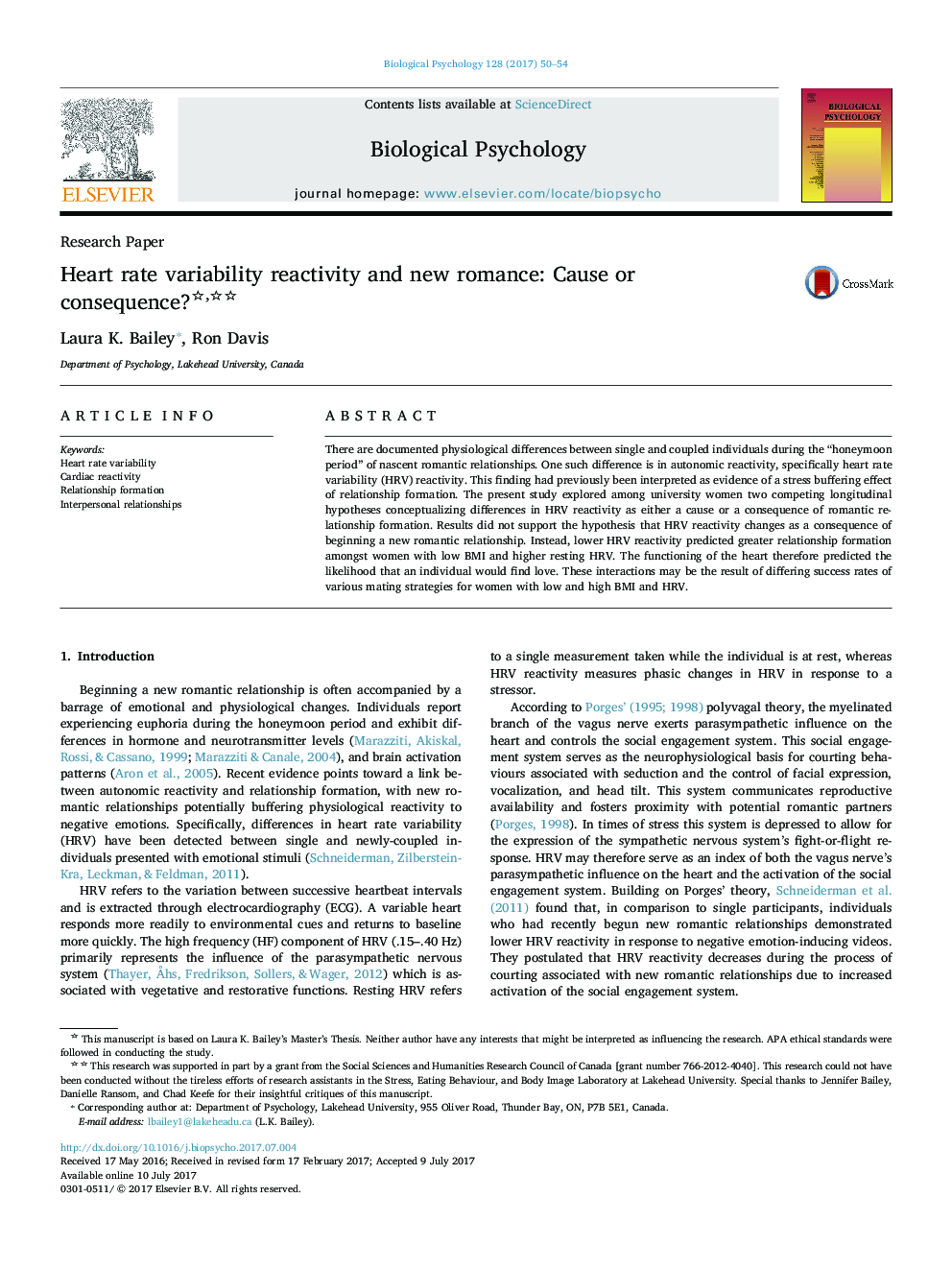| کد مقاله | کد نشریه | سال انتشار | مقاله انگلیسی | نسخه تمام متن |
|---|---|---|---|---|
| 5040379 | 1473846 | 2017 | 5 صفحه PDF | دانلود رایگان |
- The link between the heart and love is supported.
- Heart rate variability does not change when starting romantic relationships.
- Cardiac functioning, along with BMI, predicts who starts romantic relationships.
There are documented physiological differences between single and coupled individuals during the “honeymoon period” of nascent romantic relationships. One such difference is in autonomic reactivity, specifically heart rate variability (HRV) reactivity. This finding had previously been interpreted as evidence of a stress buffering effect of relationship formation. The present study explored among university women two competing longitudinal hypotheses conceptualizing differences in HRV reactivity as either a cause or a consequence of romantic relationship formation. Results did not support the hypothesis that HRV reactivity changes as a consequence of beginning a new romantic relationship. Instead, lower HRV reactivity predicted greater relationship formation amongst women with low BMI and higher resting HRV. The functioning of the heart therefore predicted the likelihood that an individual would find love. These interactions may be the result of differing success rates of various mating strategies for women with low and high BMI and HRV.
Journal: Biological Psychology - Volume 128, September 2017, Pages 50-54
